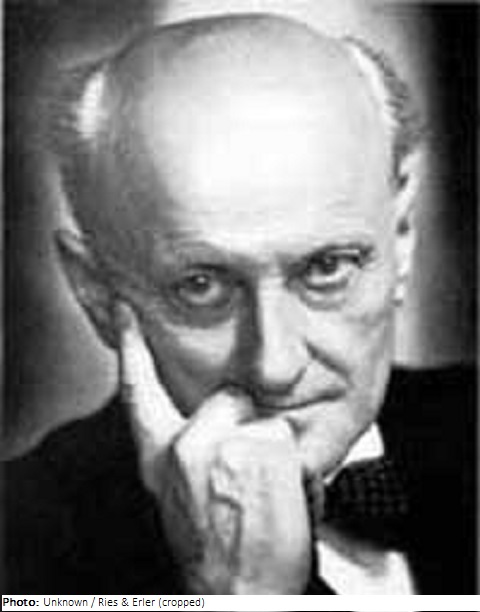
| Roles | Referee |
|---|---|
| Sex | Male |
| Full name | Richard Gustav Heinrich "Heinz"•Tiessen |
| Used name | Heinz•Tiessen |
| Born | 10 April 1887 in Kaliningrad, Kaliningrad (RUS) |
| Died | 29 November 1971 (aged 84 years 7 months 19 days) in West-Berlin, Berlin (GER) |
| NOC |  Germany Germany |
The conductor, music critic, teacher, and composer Heinz Tiessen first began studying law in Berlin at the request of his father. At the same time, he studied music at the Stern Conservatory. After the successful performances of his two symphonies in 1913 and 1914, he devoted himself entirely to music. He was a music critic for the Allgemeine Musikzeitung (1911-17) before his patron Richard Strauss (1864-1949) found him a position as répétiteur at the Royal Opera in Berlin. Tiessen then worked as a conductor at various Berlin theaters and directed Der Jungen Chor für Arbeiterkinder (The Young Workers’ Children Choir, 1922-32). In 1925 he was appointed composition teacher at the Berlin Academy of Music.
Tiessen was opposed to the Nazis and his works were considered undesirable and banned. However, he was able to continue teaching until the end of World War II. He was also a censor for the Reich Music Review Board of the Reich Ministry for Propaganda.
From 1946-1949 Tiessen was director of the Berlin Municipal Conservatory and returned to the Academy of Music in 1949. He left his position in 1955 to become director of the music department at the West Berlin Academy of Arts and to compose more again. When he died after a prolonged illness, however, he was all but forgotten as a composer. Tiessen published an autobiography, “Wege eines Komponisten” (Ways of a Composer), in 1962. He composed in both traditional and modern idioms. Bird calls played an important role in a number of his works, and he pursued systematic studies of the structure of bird songs. After his early works, which were influenced by late Romanticism, he became one of the main representatives of musical expressionism in Germany. In addition to the symphonies, his compositions included the dance drama Salambo, the Totentanz-Suite (Dance Macabre-Suite) for violin and orchestra, Concertante Variations for piano and orchestra, the Amsel-Septett (Blackbird Septet) for flute, clarinet, horn, and string quartet, a string quintet, piano pieces, including a sonata, choruses, dramatic music, and songs.
As a member of the jury, Tiessen replaced Kurt Thomas, who had been nominated originally and entered the competition instead. In 1953, he received the Order of Merit of the Federal Republic of Germany.
| Games | Sport (Discipline) / Event | NOC / Team | Phase | Unit | Role | As | |
|---|---|---|---|---|---|---|---|
| 1936 Summer Olympics | Art Competitions |  GER GER |
Heinz Tiessen | ||||
| Music, Compositions For Orchestra, Open (Olympic) | Final Standings | Judge | |||||
| Music, Compositions For Solo Or Chorus, Open (Olympic) | Final Standings | Judge | |||||
| Music, Instrumental And Chamber, Open (Olympic) | Final Standings | Judge |